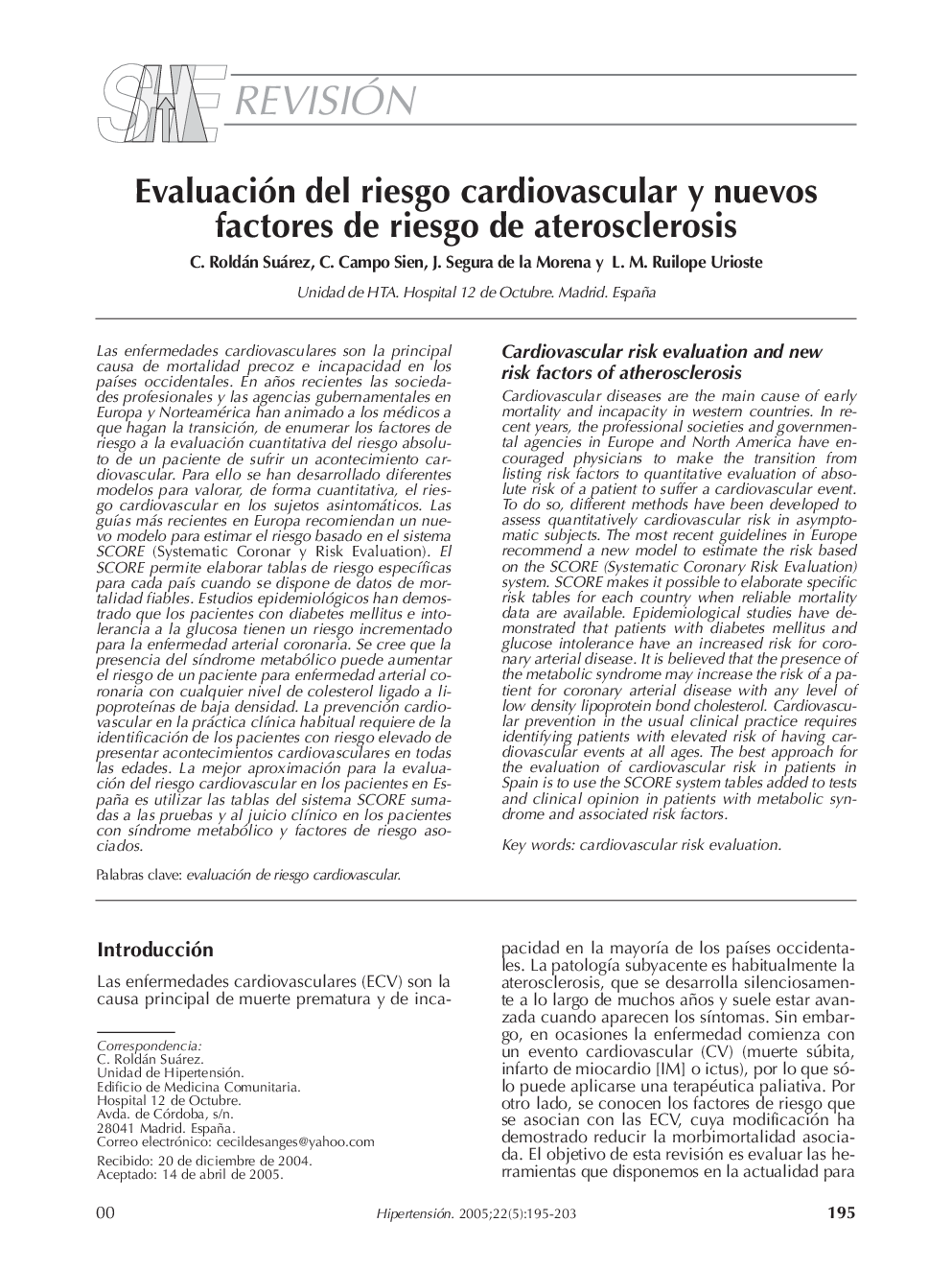| Article ID | Journal | Published Year | Pages | File Type |
|---|---|---|---|---|
| 9169532 | Hipertensión | 2005 | 9 Pages |
Abstract
Cardiovascular diseases are the main cause of early mortality and incapacity in western countries. In recent years, the professional societies and governmental agencies in Europe and North America have encouraged physicians to make the transition from listing risk factors to quantitative evaluation of absolute risk of a patient to suffer a cardiovascular event. To do so, different methods have been developed to assess quantitatively cardiovascular risk in asymptomatic subjects. The most recent guidelines in Europe recommend a new model to estimate the risk based on the SCORE (Systematic Coronary Risk Evaluation) system. SCORE makes it possible to elaborate specific risk tables for each country when reliable mortality data are available. Epidemiological studies have emonstrated that patients with diabetes mellitus and glucose intolerance have an increased risk for coronary arterial disease. It is believed that the presence of the metabolic syndrome may increase the risk of a patient for coronary arterial disease with any level of low density lipoprotein bond cholesterol. Cardiovascular prevention in the usual clinical practice requires identifying patients with elevated risk of having cardiovascular events at all ages. The best approach for the evaluation of cardiovascular risk in patients in Spain is to use the SCORE system tables added to tests and clinical opinion in patients with metabolic syndrome and associated risk factors.
Related Topics
Health Sciences
Medicine and Dentistry
Cardiology and Cardiovascular Medicine
Authors
C. Roldán Suárez, C. Campo Sien, J. Segura de la Morena, L.M. Ruilope Urioste,
